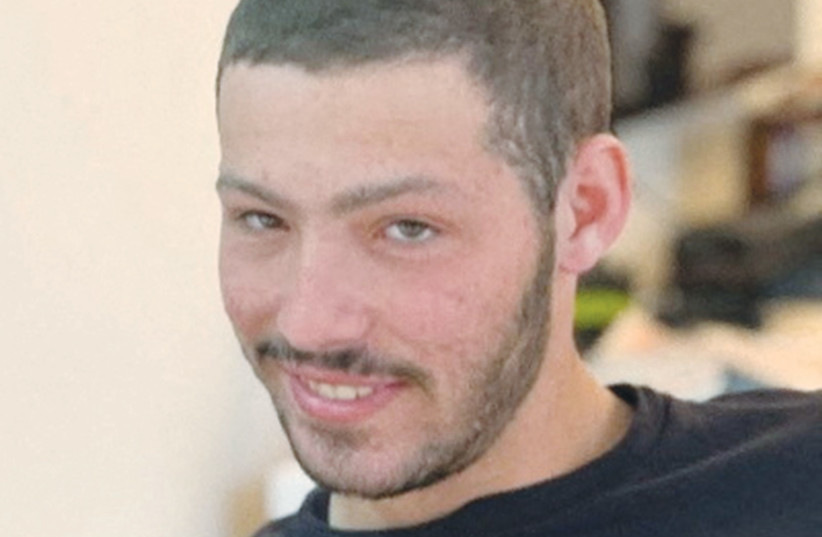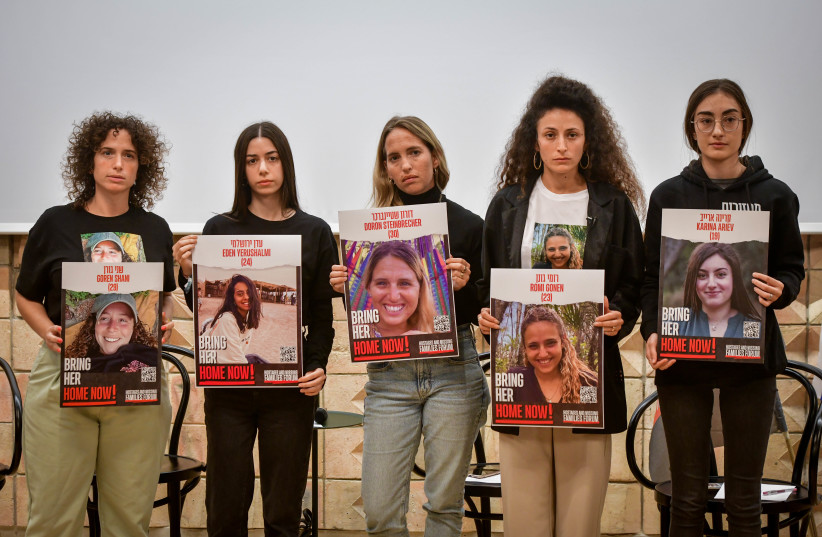Rabbi Jonathan Sacks described Judaism as “the religion of hope”.
Israel is the country of hope – after all, our National Anthem is called “Hatikva – The Hope.”
But right now, as I write these words with the tears in my eyes obscuring the keyboard, it doesn’t feel like there is any hope.
Our boy, Sgt. Itay Chen, son of our community members and friends Ruby and Chagit Chen, is no longer among the living.
Itay was serving in the Tank Corps and was last heard from on October 7 at 6.40 a.m.

He was declared missing in action.
A few days later, his father Ruby, a man of such strength and integrity that it is hard to believe, came to me in the synagogue and told me there was some good news – I desperately wanted him to tell me that Itay was found alive and well and would be joining us very soon – but the “good news” was that he was officially declared a hostage – kidnapped by the vile perpetrators of the worst crime against the State of Israel in its history.
Ruby embarked upon a campaign of publicly working to keep the hostages in the minds of the world. As an American/Israeli dual nationality citizen, he flew back and forth to Washington, met with senators, leaders and visited US President Joe Biden in the White House to implore him to do more to bring home the hostages.
Nobody could have done more – and all the while, Itay’s parents and brothers and his extended family in our community never gave up hope.
I sent out a photograph of Itay’s smiling face that Ruby had prepared with the words “Help find Itay.” So many of us placed this photograph on our Shabbat tables as an honored guest.
My wife placed the photograph on the wall together with those of our own children above where she lights the Shabbat candles, and each week as she fervently prayed for the peace, health and welfare of our children over the glowing flames, Itay was there too, firmly in our minds and hearts.
Announcement of Itay's murder
But on Tuesday it was announced that Itay had been killed early on that infamous day of Simchat Torah 5784, October 7, 2024, and his body taken captive to Gaza, where it remains in the hands of the heinous terrorists.
The news hit us like a juggernaut out of control. We weren’t expecting it – we remained full of hope that Itay would be returned healthy and well. But it will not be so.
In the words of the Kinnot which we read on Tisha Be’Av the saddest day of the Jewish year, when we recall so many tragedies over the millennia, “Woe is to us, we are bereft!”
Yes, our community’s hope lies shattered, broken and splintered into tiny pieces, never to be gathered together again, like the glass that Itay will now never stamp upon under the chuppah.
How do we react? How can we go about our daily business, work, looking after the children, dealing with the petty nonsense that life inevitably throws up?

HOW DO Itay’s heartbroken family drag themselves out of bed in the morning?
Right now, in the eye of the storm, the answers escape me – I grasp at ideas swirling around in my head, in no particular order.
When the news broke, I was in the middle of a work video conference and a Whatsapp message appeared on my screen. I felt sick and was unable to concentrate on the words being spoken, and I excused myself from the meeting.
Should we, as a community cancel our upcoming Purim celebrations? Should we stop going out to friends? Should we refrain from everyday activities which seem so trivial today?
These are questions we are grappling with now.
The first instinct is to cancel everything, put our collective heads in our hands and just weep.
But we must go on – we are obliged to continue the fight, to achieve the victory that Itay was fighting for, to restore some kind of normality to the lives of our people – accepting that it will never be the same again without Itay and the hundreds, no – thousands of other blameless victims of this horror.
If we don’t – they win and we lose. This cannot be allowed to happen.
This has been the Jewish way from the time of our beginnings.
In Egypt when the fledgling Israelite nation were enslaved, the men gave up hope and separated from their wives saying that it was hopeless to bring new life into such a terrible world. The women disagreed and ensured the survival of the nation by continuing to procreate – and are praised for their strength and foresight.
In the worst years of the Spanish Inquisition, Jews continued to be Jews, albeit sometimes in secret, but they never stopped and even now more than 500 years later the descendants of the Bnei Anusim (Hebrew for “the progeny of those who were coerced”) are coming home.
Even during the Holocaust, hope was never completely extinguished and Israel itself rose from the ashes.
So, I don’t know how I or we will do it – but we will continue, we will get up, get dressed, go about our daily lives, and do what is necessary – yes, with a heavy heart, but we will do it.
We will celebrate Purim, we will smile for our children and grandchildren when they show us their costumes, and we will never lose hope, because we owe it to Itay and the other brave heroes of our people to remain the People of Hope.
The writer is a rabbi and physician living in Ramat Poleg, Netanya, and is a cofounder of Techelet-Inspiring Judaism.
